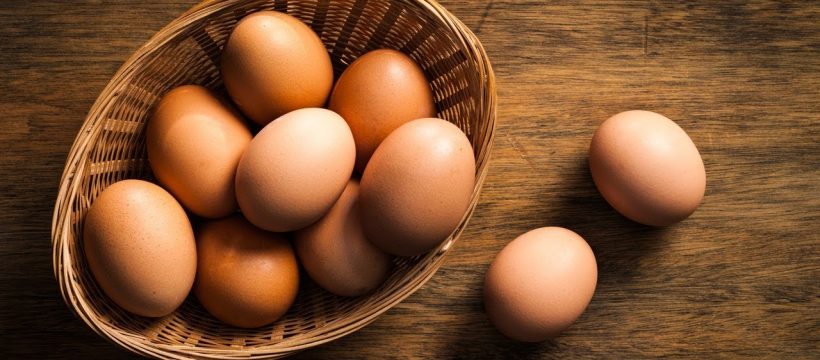The amino acid scores for whole egg , white and yolk are 136, 145 and 146 respectively. Eggs are a good source of complete proteins. This is because the yolk and white need to contain everything necessary for a growing chick embryo.
- Click here and set serving size to 1 large (50g) to see what nutrients there are in a raw whole egg.
- Click here and set serving size to 1 large (33g) to see what nutrients there are in a raw egg white.
- Click here and set serving size to 1 large (17g) to see what nutrients there are in a raw egg yolk.
Can I drink eggs raw to save time?
There are three potential problems with this:
- Salmonella poisoning. Unless you’re pretty sure of the hens that the eggs came from, there is a risk of poisoning from raw eggs. This doesn’t apply to pasteurised eggs from suppliers.
- Poor absorption of egg white protein. According to www.jn.nutrition.org/cgi/content/full/128/10/1716, only 51% of raw egg white protein is absorbed during digestion compared to 91% for cooked egg white protein. According to www.ajpgi.physiology.org/cgi/content/full/277/5/G935 , the figures are 65% and 94% respectively. The second study used 200g of white and one yolk. I don’t believe that there is a problem with the absorption of raw egg yolk, though problem 1 still remains. Pasteurised egg white protein is well-absorbed.
- Poor biotin absorption. Raw egg white contains a glycoprotein called avidin which binds to biotin (Vit. B7) in the yolk and prevents its absorption. Cooking or pasteurisation denatures (changes the 3-D structure of) the avidin and renders it harmless
What about all the cholesterol in egg yolks?
Current ‘Healthy Eating’ guidelines state that we should eat no more than 3 egg yolks/whole eggs per week. This is based on the erroneous assumption that dietary cholesterol always increases serum cholesterol and that this is always a bad thing. According to www.ajcn.org/cgi/reprint/32/5/1051.pdf, adding or not adding 500mg of dietary cholesterol from two large eggs per day made no significant difference to serum cholesterol or triglycerides in 116 healthy male subjects. Some went up and some went down.
Eddie Vos reckons that you’d have to eat 20 whole eggs per day to get as much dietary cholesterol as the liver produces each day (5g).
Egg yolks do contain some fat and this should be factored into your total diet.
There is a problem with modern eggs though, and it’s caused by the food that’s fed to the hens. Grains contain about 50 times more Linoleic acid (omega-6) than Alpha-Linolenic acid (omega-3) and this raises the omega-6:omega-3 ratio of the eggs that the hens lay. Hens eating a natural diet of bugs, grubs and vegetation lay eggs with a 1:1 ratio of omega-6:omega-3, but grain-fed hens lay eggs with an omega-6:omega-3 ratio of >10:1. A high omega-6:omega-3 ratio in the diet is associated with increased risk factors for heart disease, cancer and insulin resistance (pre-type 2 diabetes). Therefore, if large numbers of cheap eggs are eaten, it’s advisable to supplement with omega-3 fats.
